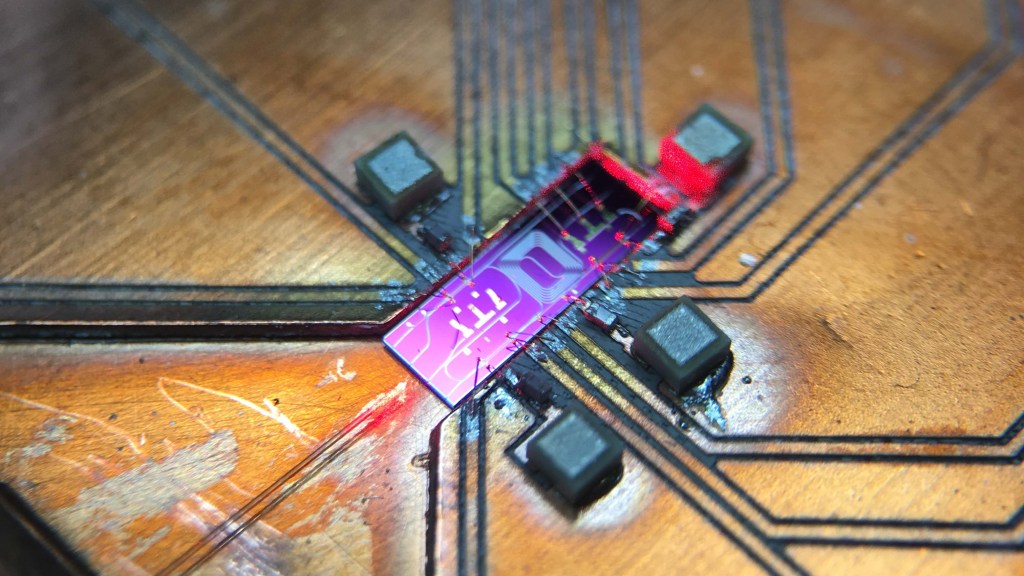Bristol-Based Start-Up Develops Quantum Cybersecurity Prototype for BT Testing
A start-up based in Bristol has created a commercially viable system aimed at safeguarding telecommunications against potential threats from quantum computer hackers, which is currently under evaluation by BT.
KETS Quantum Security has engineered a silicon chip-based solution that utilizes light to transmit quantum encrypted keys. This innovative approach ensures secure data transmission while also enabling the detection of any unauthorized interception attempts.
Chris Erven, co-founder and CEO of the company, indicated that they anticipate substantial sales to sectors classified as critical national infrastructure, including telecommunications, finance, and data centers. These industries are proactively preparing for risks posed by malicious actors leveraging quantum computing to compromise existing security measures.
Erven highlighted, “If everything proceeds as planned, we expect to scale this technology for widespread sales. Our goal is to integrate it into billions of devices over the next couple of years. We envision a small KETS sticker inside every essential communications device.”
The prototype’s development was supported by a £1.7 million grant from Innovate UK, the government’s innovation agency. Currently, the KETS system occupies 70 percent of a standard server box, with plans to reduce this footprint to 30 percent by the year’s end, making it comparable in size to a graphics card suitable for integration into standard telecommunications equipment, according to Erven.
In addition to BT’s security testing, the quantum key prototype participates in an industry-led quality assurance initiative aimed at establishing standardized protocols. KETS has also dispatched “multiple units” of its earlier generation security system to a telecom multinational, which is employing them within its quantum network in the EU.
Erven stated, “All major telecommunications firms are setting up testbed networks in preparation for a full-scale launch. Europe is slightly ahead in this area with the EuroQCI initiative, which is working on national quantum-safe networks across all 27 EU nations, currently in phase two of connectivity.”
This hardware-based security framework stands in contrast to the alternative of advanced algorithms, which have been advocated by cybersecurity organizations such as the National Institute of Standards and Technology in the U.S. and the UK’s National Cyber Security Centre (NCSC).
Established in 2016 and rooted in research from the University of Bristol, KETS has secured £5.5 million in funding from investors and achieved similar amounts in grants.
Erven mentioned that discussions are ongoing with various international strategic partners from Europe and the U.S. to facilitate production scaling, and the company is set to initiate a new fundraising round.
He emphasized the urgency for major enterprises and governments to address the looming cybersecurity threats posed by quantum computing hackers, suggesting that this issue should be prioritized in boardroom discussions. “It’s crucial that organizations begin planning for migration,” he stated. “The NCSC has advised a timeline of ten years for upgrades, but I believe those timelines should be halved. Australia has similarly recommended a shorter timeline, which I commend.”




Post Comment